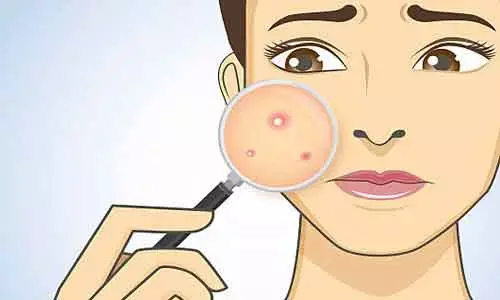- Home
- Medical news & Guidelines
- Anesthesiology
- Cardiology and CTVS
- Critical Care
- Dentistry
- Dermatology
- Diabetes and Endocrinology
- ENT
- Gastroenterology
- Medicine
- Nephrology
- Neurology
- Obstretics-Gynaecology
- Oncology
- Ophthalmology
- Orthopaedics
- Pediatrics-Neonatology
- Psychiatry
- Pulmonology
- Radiology
- Surgery
- Urology
- Laboratory Medicine
- Diet
- Nursing
- Paramedical
- Physiotherapy
- Health news
- Fact Check
- Bone Health Fact Check
- Brain Health Fact Check
- Cancer Related Fact Check
- Child Care Fact Check
- Dental and oral health fact check
- Diabetes and metabolic health fact check
- Diet and Nutrition Fact Check
- Eye and ENT Care Fact Check
- Fitness fact check
- Gut health fact check
- Heart health fact check
- Kidney health fact check
- Medical education fact check
- Men's health fact check
- Respiratory fact check
- Skin and hair care fact check
- Vaccine and Immunization fact check
- Women's health fact check
- AYUSH
- State News
- Andaman and Nicobar Islands
- Andhra Pradesh
- Arunachal Pradesh
- Assam
- Bihar
- Chandigarh
- Chattisgarh
- Dadra and Nagar Haveli
- Daman and Diu
- Delhi
- Goa
- Gujarat
- Haryana
- Himachal Pradesh
- Jammu & Kashmir
- Jharkhand
- Karnataka
- Kerala
- Ladakh
- Lakshadweep
- Madhya Pradesh
- Maharashtra
- Manipur
- Meghalaya
- Mizoram
- Nagaland
- Odisha
- Puducherry
- Punjab
- Rajasthan
- Sikkim
- Tamil Nadu
- Telangana
- Tripura
- Uttar Pradesh
- Uttrakhand
- West Bengal
- Medical Education
- Industry
Study details how Sarecycline acts in treatment of acne

New Haven, Conn. - Sarecycline, a drug approved for use in the United States in 2018, is the first new antibiotic approved to treat acne in more than 40 years. Now, researchers at Yale and the University of Illinois-Chicago have discovered how its unique chemical structure makes it effective.
Their new study is the most detailed biological analysis to date for sarecycline, one of a number of tetracycline antibiotics (such as doxycycline and minocycline) used to treat acne. The researchers report findings in Proceedings of the National Academy of Sciences.
Acne vulgaris is a common chronic skin disease involving blockage and/or inflammation of hair follicles and their accompanying sebaceous gland. Acne affect mostly the face but also the back and chest and can present as noninflammatory lesions, inflammatory lesions, or a mixture of both.
They found that unlike other tetracycline drugs, sarecycline binds to messenger RNA (mRNA) -- molecules within a cell that provide a code for making proteins -- in bacterial ribosomes. Ribosomes, found in all living cells, link amino acids together.
Sarecycline and other tetracyclines treat acne by inhibiting bacterial protein synthesis. They block ribosome function in Cutibacterium acnes, the pathogenic bacterium in acne.
"We show that the structure of sarecycline matters," said Dr. Christopher Bunick, associate professor of dermatology at Yale and co-corresponding author of the study. "This mode of action has never been seen before in this class of antibiotics, and suggests that sarecycline has unique properties among the tetracycline class."
Importantly, the researchers found an explanation for why sarecycline has such a low drug-resistance profile, boosting its effectiveness. Sarecycline thwarts TetM, a ribosome guardian protein that protects bacteria from outside interference.
Bunick and his team said the broader implication of the study is that structural knowledge of tetracycline compounds could be used to engineer better antibiotics.
"This could result in therapies with better or longer-lasting efficacy, fewer side effects, and lower drug resistance," Bunick said. "Future agents could be used not just in acne, but potentially in other skin disorders and infections as well."
Hina Zahid Joined Medical Dialogue in 2017 with a passion to work as a Reporter. She coordinates with various national and international journals and association and covers all the stories related to Medical guidelines, Medical Journals, rare medical surgeries as well as all the updates in the medical field. Email: editorial@medicaldialogues.in. Contact no. 011-43720751
Dr Kamal Kant Kohli-MBBS, DTCD- a chest specialist with more than 30 years of practice and a flair for writing clinical articles, Dr Kamal Kant Kohli joined Medical Dialogues as a Chief Editor of Medical News. Besides writing articles, as an editor, he proofreads and verifies all the medical content published on Medical Dialogues including those coming from journals, studies,medical conferences,guidelines etc. Email: drkohli@medicaldialogues.in. Contact no. 011-43720751


